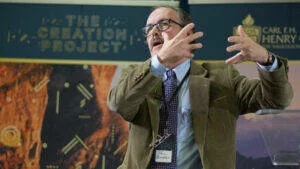Few chapters of Scripture have been submitted to the same level of scrutiny as the first chapter of Genesis, with exegetes seeking in this text teachings on cosmology, philosophy, natural history, anthropology, and many other subjects. The breadth of possible applications that can be drawn from this text has led many exegetes to slide into speculation, however, as they seek to base broad conclusions on the truths provided by this brief chapter. In this selection from his commentary on Genesis, however, Italian reformer Peter Martyr Vermigli (1499-1562) draws a much shorter bow, and in doing so, finds sure ground for a basic theological truth reflected in the Apostles’ Creed: God’s character is made manifest in creation and the goodness evident in his creation forms the firm foundation upon which humanity’s experience of God rests.
Commentary
The invisible things that we here perceive are innumerable but are all rounded up into three categories: power, wisdom and goodness. The greatness of the things brought forth, their sudden coming into being from nothing, solely by order of the word, argue for the greatest power. Moreover, the craftsmanship, beautiful appearance, adornment and exceptional arrangement attest to the artificer’s wisdom. The usefulness that we on our part gather from here teaches how great is his goodness. It is of great importance for us to embrace this making of the world with faith, so that the Creed may take its starting point from here. Should this be taken away, the first sin will not stand out, the promises about Christ will collapse, and all the power of religion is sunk to the bottom. And since all the articles of our faith are more or less propositions or principles of our piety, among all of them this one is considered first in order.
Genesis 1-11, ed. John L. Thompson, Reformation Commentary on Scripture, OT vol. 1, p. 11.








Comments
Be the first one to make a comment!